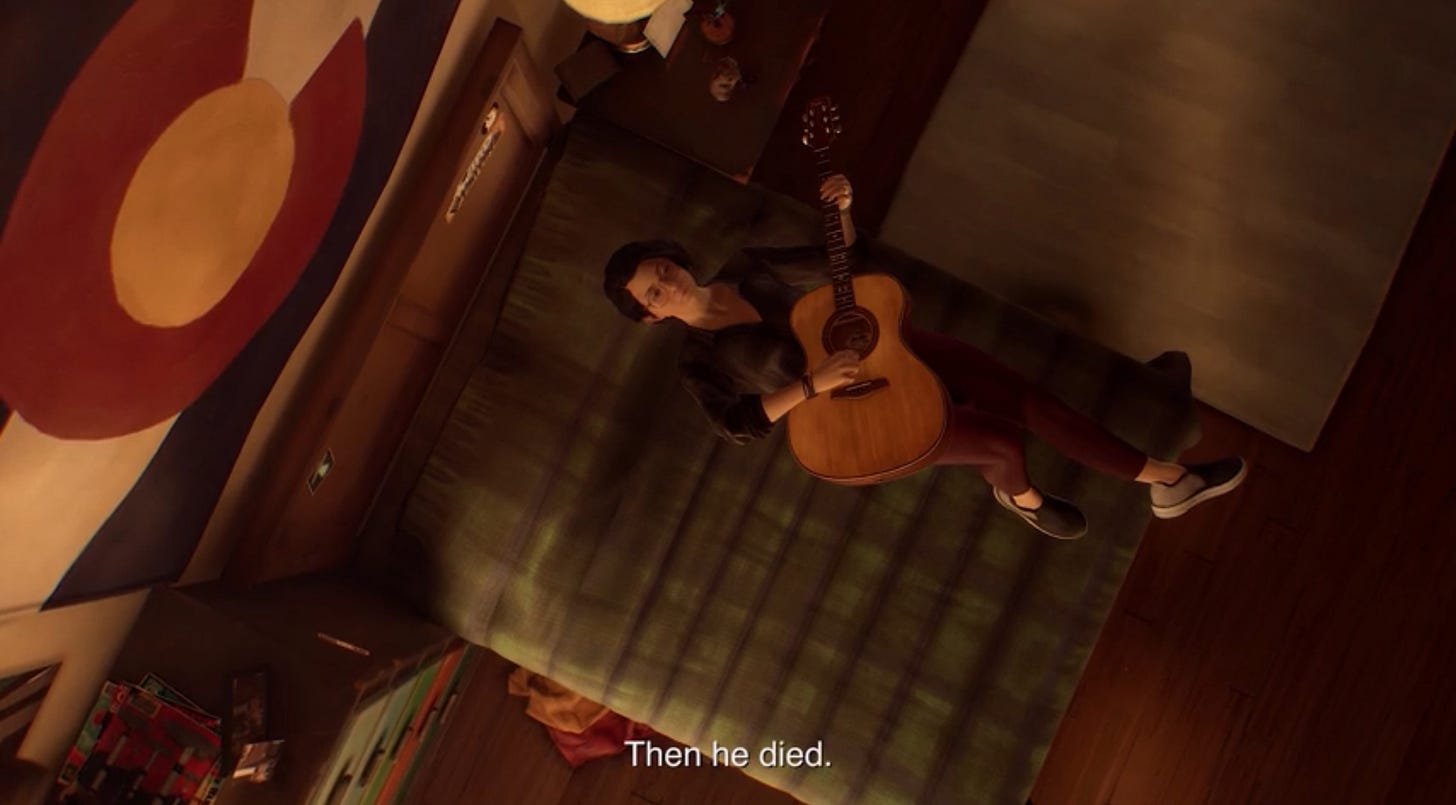Life is Strange: True Colors
by Square Enix
Released on Steam in September 2021
Jess steered this one, playing on a USB controller whose buttons weren’t exactly mapped to the game’s defaults. Her aging computer, purchased either pre- or early pandemic, sputtered and stuttered, even after a fresh install and some tinkering. But she got it running well enough, and after intermittent play sessions together over the course of several months, we completed all 12 or so hours of the game.
There’s a long-running joke in some circles of the internet that the first Life is Strange—which is effectively a western yuri—can serve as some kind of trans femme bellwether. It certainly resonated with me when I played it, back when I first started HRT, and Jess’s computer was young and spry. True Colors hits home too, with its guitar-playing, Asian woman protagonist also named Alex, though I don’t have the superhuman ability to plumb memories embedded in inanimate objects or buried deep in the minds of local townsfolk.
But there’s still trans content to be found. In her apartment’s rooftop garden in downtown Haven Springs, Alex finds a button for her friend Steph’s now-defunct DIY band, a duo with Steph’s ex-girlfriend Izzie. Steph fell in love with the small Colorado mining town while on tour and decided to relocate from Seattle. Izzie chose to end the relationship and stay in the city, having no desire to be the only trans person in the community, despite its relative diversity and liberal-leaning vibe.
I get it. Even in and around Philly, I’m more often than not the only trans person (that I know of) in any given space. Part of it is a numbers game; part of it is probably the fact that I don’t leave the house much except to play shows. We’ll see how much this changes now that I don’t have a full-time job or any gigs set up until the end of September.
Being seen is hard—not universally, but maybe from people who hold some kind of power over me. My dad took forever to consistently use she and her for me, and now that he’s finally gotten it down, I feel a twinge of something adjacent to embarrassment. Same goes for when my psychiatrist calls me madam. I don’t think this necessarily signals a discomfort with my identity. It stems more from the fear and caution with which I enter most spaces, hoping I pass for safety and privacy’s sake. There’s a lot to unpack here, but in certain contexts, being invisible and left alone can often feel better than being affirmed. I don’t know if that’s good, bad, or value neutral.
I was onstage and in costume for the last musical I did, and I was (appropriately) given a spot in the women’s dressing room—a first for me. Despite being welcomed unequivocally, I couldn’t help but wonder who, if anyone, had clocked me, and if that somehow changed how they perceived me. I try to give people the benefit of the doubt, but I also don’t think my questioning was unfair. I don’t have cis privilege; I can’t assume everyone will be cool with me.
True Colors is about accepting the generosity of strangers while at once sussing out who can ultimately be trusted after a lifetime of not being able to trust anyone. You inevitably get burned because every narrative needs conflict—or at least some obstacle to surmount. Material conditions dictate our priorities. I need to figure out how to make some money.



